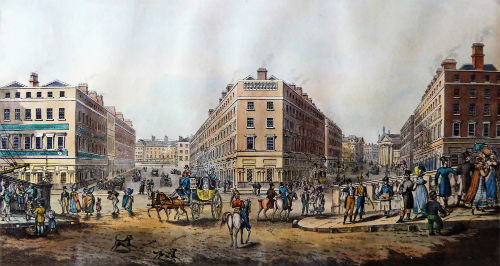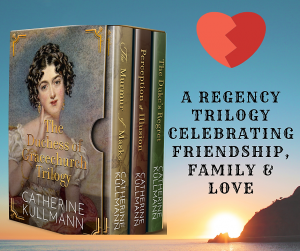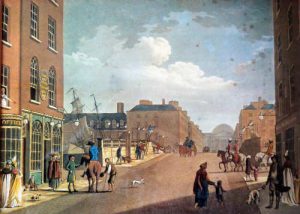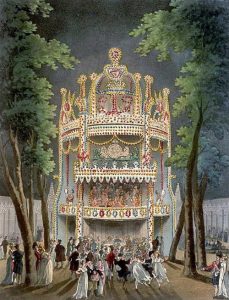
Catherine Kullman is an author who specialises in Regency Period Historical Fiction. In this Q&A we explore Catherine’s writing and research methods. Inspired by the likes of Jane Austen, the allure of the period is made very clear in Catherine’s answers. Her latest trilogy celebrates friendship, family.

What has inspired you to set your novels in the Regency period?
Jane Austen who lived and wrote during the Regency and Georgette Heyer who rediscovered it as a setting for her own novels.
Personally, I know very little about the Regency period. It’s also an area that gets little time in schools. What makes the period special to you?
Technically, the Regency lasted from 1810 to 1820—the period when the Prince of Wales acted as regent for his incapacitated father, King George III. The phrase ‘the extended Regency’ refers to the years between the prince’s marriage in 1795 and his death, as King George IV, in 1830. The events of this period include the Act of Union between Great Britain and Ireland of 1800, the Anglo-American war of 1812 and the more than a decade of war that ended in the final defeat of Napoleon at Waterloo in 1815 all of which continue to shape our modern world.
I love the music, literature, art and architecture of that time, the fashion—between hoops and crinolines—is still very wearable today, and indeed the Empire line is revived regularly. There was a great appetite for social and political change and some very brave and engaged men and women worked tirelessly for reform in areas such slavery, prisons, Catholic emancipation and political reform. It is the very dawn of the age of steam, but the heyday of the stage and mail coaches. This all comes together to create an era that never ceases to fascinate me.
How did you research the period?
I go back to primary sources as much as possible, reading contemporary novels, poetry, essays, diaries, memoirs and autobiographies as well as magazines, journals, cookery books, children’s books (both educational and entertaining), letter-writing manuals, travel guides, etc. etc. Many of these are to be found online, but I have built up a research library of over 900 volumes. There is also a wealth of contemporary illustrations, caricatures etc.

In addition, Dublin, my home town, is architecturally very much a Georgian town. My school was in a Georgian house. More recently, I was head of administration of a firm that was spread over four such four-story houses so you could say that I have Georgian architecture in my bones. I love to explore Georgian buildings from the huge country houses of the wealthy to the small abodes of tradesmen who lived over the shop and to imagine my characters in them.
With the Regency period already featuring in your historical fiction, where and when will your next novel be set?
My next novel will be set in England in 1817.

Your work is relationship-driven, how did you set about establishing the norms of the Regency period for relationships?
Part of the challenge of writing historical fiction is to gain the understanding of the modern reader for the constraints under which your characters must live so that their actions seem plausible. Here, again, I draw on contemporary sources—press reports, novels, plays, magazines and journals, reports of scandals and notorious trials, manuals of etiquette etc. In addition, the norms of the Ireland I grew up in were in many ways more similar to those of the Regency than to the present day. This helps me to get into the head of my characters.
How did you get into writing?
I always loved writing, from the day I wrote my first ‘composition’ at school. I was also always a great reader and, if I really loved a book, I wanted to know what happened next. My work in both the public and private sectors required a lot of drafting and redrafting and I learned to express myself clearly and elegantly. I always wanted to write fiction but did not have the time and mental space to do so until I took early retirement. Then, suddenly, it was a matter of ‘if not now, when?’
How do you go about planning your novels?
Usually a ‘what if?’ or ‘what next’ triggers one. I like to explore what happens after the happy end. I am more a pantser than a plotter; I don’t start with elaborate outlines—the plot develops with my first draft. I do a lot of preparatory work on my characters, getting to know them and the network of their relationships. These connections intrigue me; if this network is frayed or knotted, or if there are holes in it, it affects not only ourselves but how we deal with others… Once I know my people and the general direction their story should take, we embark on the voyage together.
How do you balance the fact and fiction when writing this type of novel?
My characters and their stories are fictional but the world they live in is real. Their concerns are the concerns of the time and I go to a lot of trouble to make their day to day lives as authentic as possible—how they travel, their clothes, their meals, their amusements. Through my research I can step into the Regency world as easily as I step out of my own front door and, I hope, take my readers with me.
One of the areas that my website is looking at currently is the way that history is interpreted and presented to the general public. How do you go about deciding how to portray your characters and the events in which they become involved in?
It is a combination of research and imagination, I suppose. Get the facts right; check, check and check again. Never assume. As writers, we should not alter the facts, nor should we attempt to interpret them from a modern perspective. We do however have the choice of how we present them to the reader. In my own era, for example, I can choose to portray those who press for reform sympathetically or as dangerous anarchists, depending on which of my characters is discussing the issue. But however I do it, I must use the knowledge and arguments of the time.
Fictional characters can act freely within the historical framework. For example, in The Murmur of Masks after Napoleon escapes from Elba Luke Fitzmaurice joins Wellington’s army and fights at Waterloo. I researched the battle and the lead-up to it extensively, seeking out older, more contemporary accounts and memoirs of the battle, and eventually based Luke’s experiences on those of William Leeke who joined the 1st/52nd in May 1815 as an ensign. But Luke is not Leeke. His actions on the day are different and, unlike Leeke, he is wounded and remains on the battlefield as the French army is routed.
Which authors have been most influential to your own writing to date?
Jane Austen and Georgette Heyer,
Have you got any plans for future books that are in a historical setting?
I have a notebook full of possible plots, all set in the same period. Although my books are not a straight series, they sometimes overlap as the characters move in the same world. Sometimes a minor character in one book takes the lead in another.
What advice would you give to an aspiring author?
Just do it! Come out from your closet and seek the support of the writing community. If you write historical fiction, I recommend joining the Historical Novel Society. With its conferences, regional chapters and Facebook groups, it is a great place to interact with other writers.
My Latest Release
Some characters slip into your books unplanned and unheralded only to play a pivotal role there. So it was with Flora, the young Duchess of Gracechurch. Flora’s own story reveals itself more slowly. Married before she was seventeen and trapped in a loveless marriage, she befriends young wives whose husbands are ‘distant,’ helping them find their feet in the ton. The Murmur of Masks and Perception & Illusion Books One and Two of the Duchess of Gracechurch Trilogy, tell the stories of two of these wives. My latest book is Book Three, The Duke’s Regret, and Flora herself takes the lead. The trilogy is available as eBook, paperback and eBook boxed set.
The Duke’s Regret
A chance meeting with a bereaved father makes Jeffrey, Duke of Gracechurch realise how hollow his own marriage and family life are. Persuaded to marry at a young age, he and his Duchess, Flora, live largely separate lives. Now he is determined to make amends to his wife and children and forge new relationships with them. Flora does not know how to respond to her husband’s suggestion. Can Jeffrey break down the barriers between them and convince her that his change of heart is sincere? Flora must decide if she will hazard her heart and her hard won peace of mind for a prize of undreamt of happiness.

About Me
I was born and educated in Dublin. Following a three-year courtship conducted mostly by letter, I moved to Germany where I lived for twenty-six years before returning to Ireland. I have worked in the Irish and New Zealand public services and in the private sector. After taking early retirement I was finally able to fulfil I life-long ambition to write. You can find out more about me and my books on my website or on my Facebook and Amazon pages.
Website: https://www.catherinekullmann.com
Facebook: fb.me/catherinekullmannauthor
Twitter: @ckullmannauthor
Amazon UK https://amzn.to/2IpO1Jo Amazon US https://amzn.to/2XkOncz
Related Content
The full list of our articles and interviews on Historical Fiction.
Vicky Adin – The Costumiers Gift, period drama series.
A.E. Walnofer on the Restoration and Regency periods (Free Book)
Leave a Reply
You must be logged in to post a comment.